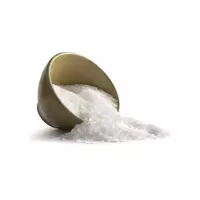Citric acid

Citric acid is a white crystalline substance that dissolves well in water and ethyl alcohol. Citric acid esters are called citrates. This substance is referred to as natural antioxidants by its effect.
Citric acid was first isolated from the juice of unseeded lemons as early as the late 18th century. Many experts claim that this acid is found in most foods and is included in various berries and citrus fruits. Interestingly, it is also contained in Chinese lemongrass, horsemeat and even rustic tobacco.
The beneficial properties of citric acid are actively used not only in the food industry, where it plays the role of an acidulant, but also as a cleaning agent and water softener. This additive is also used in the production of mayonnaise, ketchups, sauces, canned food, jelly, jams, confectionery and other products. In order to increase the shelf life of many products, it is often placed as a preservative in fish and other canned food.
Citric acid is added to some foods to improve taste. Due to the fact that it is used in the manufacture of processed cheese, as a result of which it has an elastic property and is more easily spread. In order for the fruit to be crisper and not soft, it is added during preservation. The caloric content of citric acid is almost zero.
Benefits of citric acid
In the process of cellular respiration, this substance is simply a necessary link, since it has bactericidal and antioxidant properties. The benefits of citric acid are not in doubt, due to the fact that it stimulates the renewal of new cells, increasing the elasticity of the skin and reducing deep wrinkles.
For the skin, it plays the role of natural peeling, which cleans the skin by masking its defects and aligning the complexion. The benefits of citric acid are obvious, as it also contributes to the elimination of toxic substances through the pores of the skin, so you can safely add it to various creams and rinses. Once a week, peel, after which your skin will be fresh and clean again, and your hair shiny and docile.
Harm to citric acid
Experts say that citric acid should be consumed in food in moderation, since it does not have the best effect on the condition of the teeth and may become one of the causes of tooth decay.
Using this substance orally, it should be remembered that compliance with a strict dosage is simply necessary, since in too large quantities the harm of citric acid manifests itself in severe irritation of the gastric mucosa. This, in turn, can be accompanied by pain, cough, and sometimes bloody vomiting.
citric acid 1 kCal
Energy value of citric acid (Ratio of proteins, fats, carbohydrates - ju):
Proteins: 0 g (~ 0 kCal)
Fats: 0 g (~ 0 kCal)
Carbohydrates: 0 g (~ 0 kCal)
Energy ratio (b | y): 0% | 0% | 0%
 Español
Español Français
Français Português
Português Русский
Русский 简体中文
简体中文 繁體中文
繁體中文 日本語
日本語 한국어
한국어 العربية
العربية Türkçe
Türkçe Қазақ
Қазақ Deutsch
Deutsch Italiano
Italiano Українська
Українська
